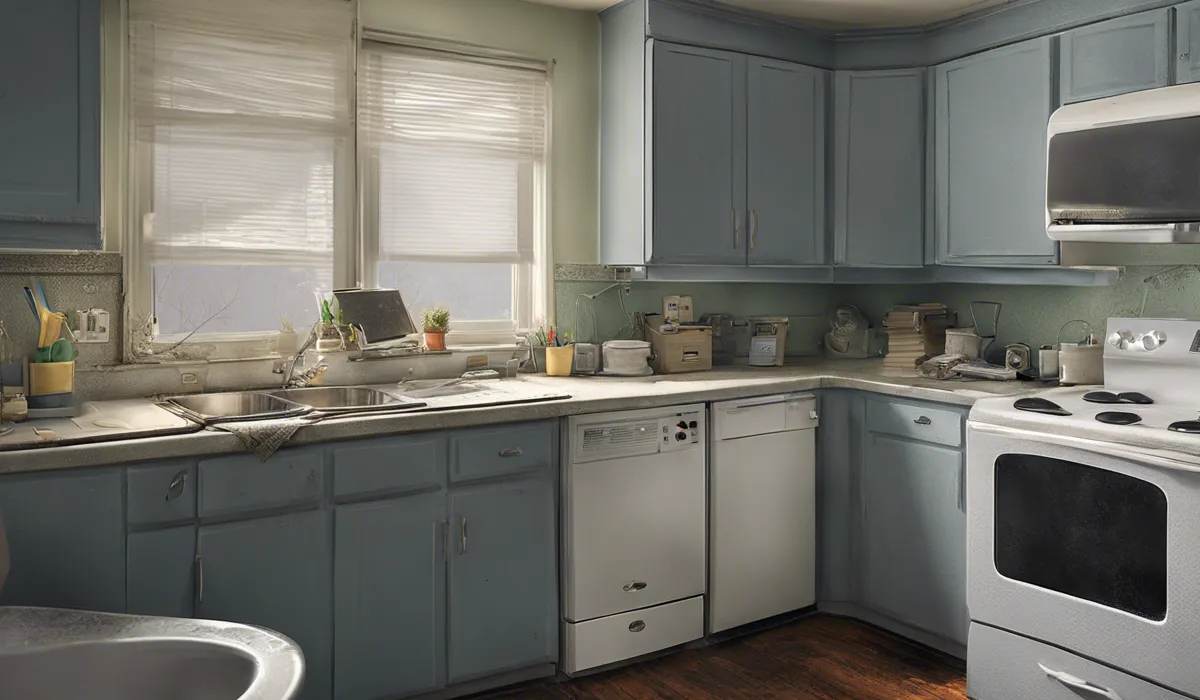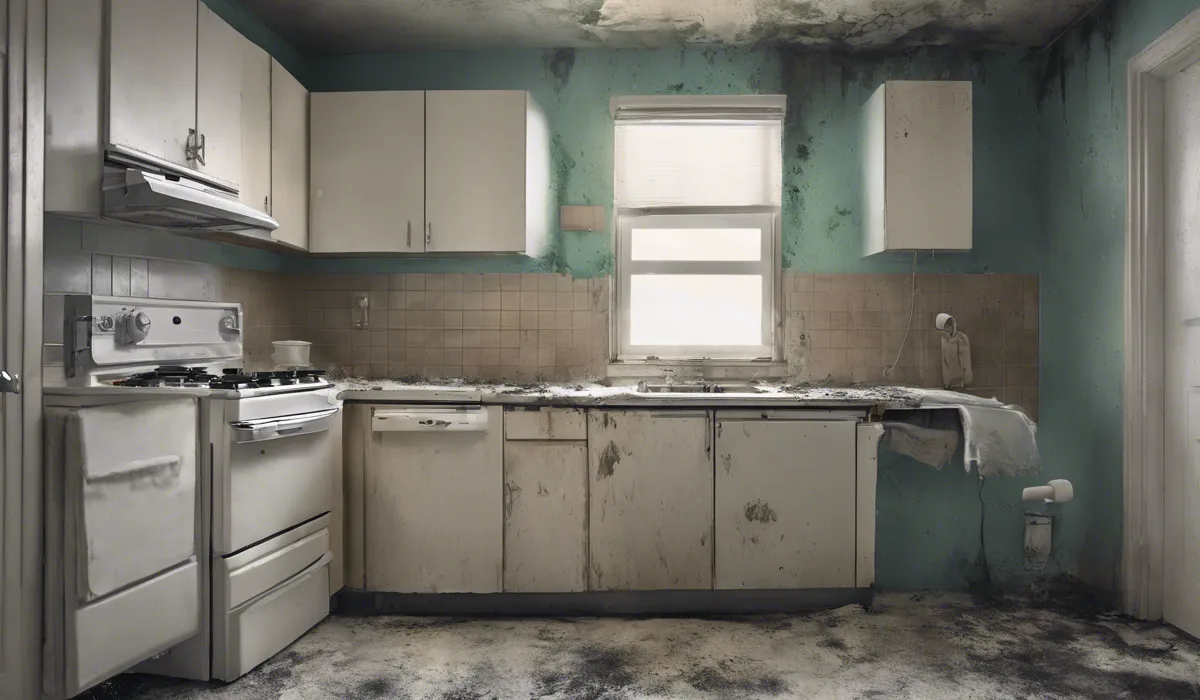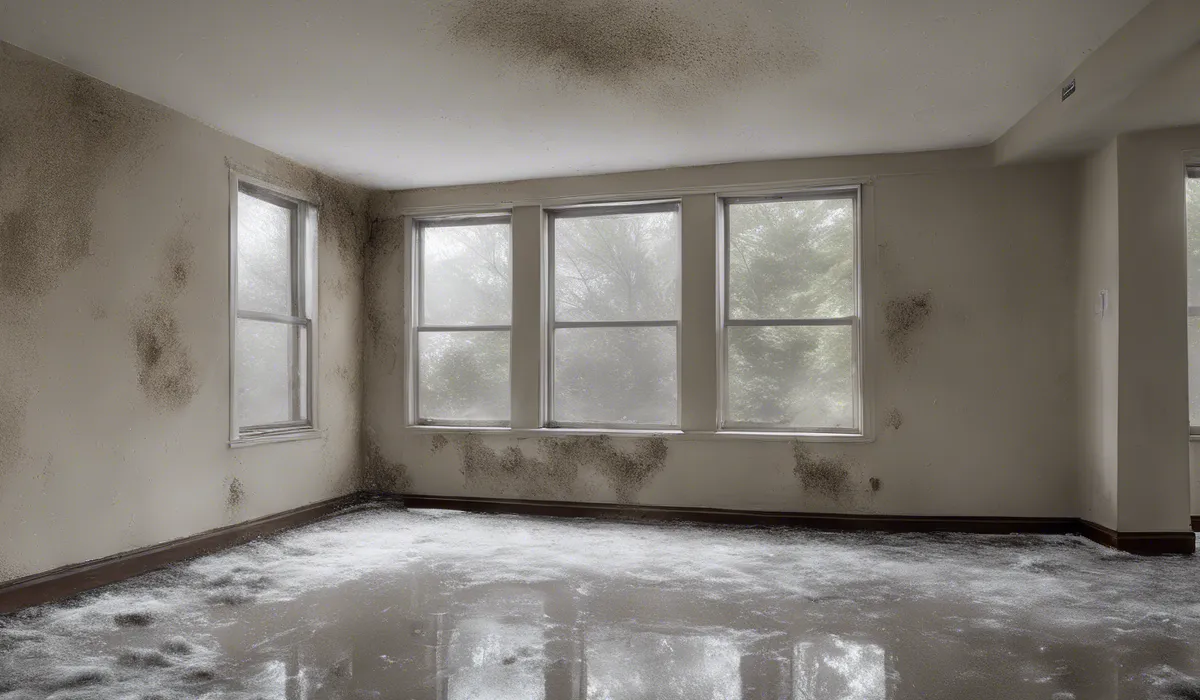If your apartment has mold, promptly inform your landlord in writing, take photos as evidence, and discuss remediation. Avoid disturbing the mold to prevent spore spread. Consult a professional if the mold area is large or if health issues arise.
Identifying Mold in Your Apartment

Recognizing the Indicators of Mold
Mold can be sneaky, but it leaves clues. You might see dark spots on walls, feel a musty smell, or even start to cough or sneeze more than usual.
These signs suggest mold is hiding in your home.
Taking action as soon as you notice something is key to keeping the mold from spreading and making sure you stay healthy.
Understanding Mold Varieties and Appearances
Mold comes in different colors and shapes. Some mold looks like little black dots, while others appear as fuzzy patches that can be white, green, or even orange.
Knowing what kind of mold you have can help you figure out the best way to clean it up and prevent it from coming back.
Scouting for Mold-Prone Zones
Mold loves damp places. Check under sinks, around windows, and in bathrooms. These spots often have the most moisture, which mold needs to grow.
If you find mold in these areas, it’s a good idea to keep an extra close eye on them in the future.
Addressing Mold for Health and Home
Ignoring mold can lead to health problems like allergies and breathing issues. It can also damage your things, like furniture and clothes.
Taking care of mold right away is important for your well-being and to protect your belongings.
Taking Immediate Action

Enhancing Ventilation and Moisture Control
Open windows and turn on fans to get fresh air flowing. Using a dehumidifier can also help keep the air dry and stop mold from growing. Dry air makes it tough for mold to survive.
Choosing the Right Cleaning Solutions
For small amounts of mold, you can use a mixture of water and soap or a special mold cleaner from the store.
Always read the instructions and use the cleaner safely. After you clean, make sure the area gets completely dry.
Deciding When to Toss Moldy Items
If something has a lot of mold, like a soggy carpet or a ruined ceiling tile, it’s probably time to throw it out. Sometimes cleaning just won’t work, and getting rid of the moldy item is the best choice.
Being Safe Around Mold
When you clean mold, wear a mask and gloves to protect yourself. Never touch mold with your bare hands, and make sure you don’t breathe in the spores.
Keeping safe means you can clean up the mold without it making you sick.
Long-Term Mold Prevention and Management

Keeping Air Moving
Good airflow stops mold from settling down. Use fans and keep doors open between rooms. This helps air circulate and keeps your home dry and mold-free.
Managing Moisture and Repairing Leaks
Fix leaky faucets and pipes as soon as you can. If the air feels too damp, a dehumidifier can help.
Taking these steps prevents mold by making sure there’s no extra water for it to grow on.
Sticking to a Cleaning Schedule
Regular cleaning can keep mold at bay. Wipe down surfaces and vacuum often. Pay special attention to bathrooms and kitchens where water is used a lot.
This routine makes it tough for mold to make a home in your space.
Seeking Professional Help
If you have a lot of mold, or if it keeps coming back, it might be time to call in the experts. They have special tools and knowledge to get rid of mold for good. Don’t hesitate to ask for help when you need it.
Understanding Your Rights and Landlord Duties
Landlords have to make sure your home is safe and healthy. If you find mold, tell your landlord in writing and take pictures. They should fix the problem.
Knowing your rights can make sure you get the help you need to live in a mold-free home.
FAQs About Apartment Mold
What should I do first if I find mold in my apartment?
Immediately inform your landlord in writing, and take photos to document the mold as evidence.
How should I communicate with my landlord about the mold?
Contact your landlord in writing, such as through email or a formal letter, to ensure there is a record of your notification.
Is it safe to clean the mold myself?
Avoid disturbing the mold yourself, as this can lead to the spread of spores. Consult a professional if the mold area is large.
What should I do to prevent mold spores from spreading?
Do not disturb the mold, which includes not trying to clean it up or dry it out, to prevent spore dispersal.
When should I consult a professional about the mold?
If the affected area is large or if you or any household members are experiencing health issues related to the mold, seek professional advice.
Final Thoughts
When discovering mold in your apartment, it’s crucial to notify your landlord in writing immediately and document the issue with photographs. Open communication about remediation plans is essential.
To prevent spore dissemination, do not disturb the mold. For extensive contamination or if health concerns are evident, seeking professional advice is advisable.
